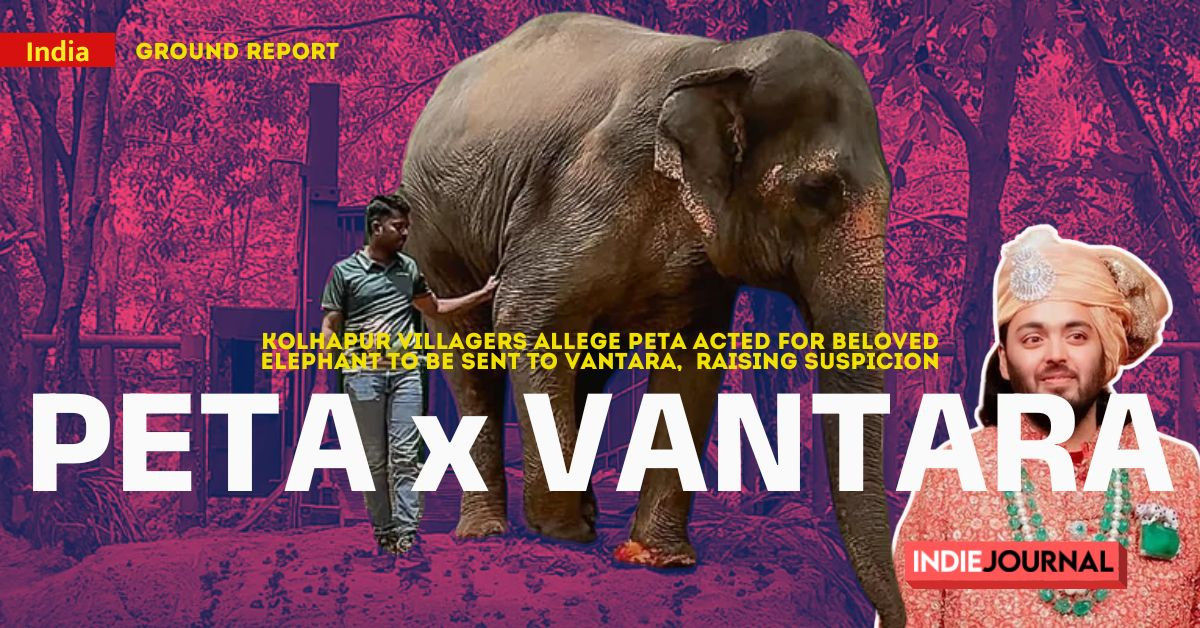India
Remembering PB Sawant, a rare openly pro-working class judge
The former Supreme Court judge breathed his last in Pune on Monday morning.

“A doyen in the judiciary and leading light of the human rights movement,” is how Adv. Mihir Desai described PB Sawant. The former Supreme Court judge breathed his last in Pune on Monday morning. Remembered by many fondly for his extraordinary judgments and nuanced study into the most controversial cases, Sawant has presided over some of the historic judgments and important committees in the country.
“When I was in class XI-XII, I was getting acquainted with the entire reservation rhetoric. I was soon to get into college, and I didn’t know how to handle the discussion around it, as a Bahujan girl. And then I happened to attend a lecture by PB Sawant. He made a really important point saying, ‘Reservation is not your poverty alleviation scheme. It is about representation, which is a goal in itself,” said Adv. Disha Wadekar.
“He stood by it that the reservation was for those, who were historically and structurally marginalised. He was the one who had the courage to speak against the 50 percent limit cap on the reservation. He asked why the reservation should exceed 50 percent only in extraordinary cases. Afterall, it was just a judicial innovation,” Wadekar added.
Wadekar also defines his opinion on the Maratha Reservation, a result of a nuanced understanding. “At the time when everyone was taking a black and white approach to talk about Maratha reservation, being a Maratha himself, Sawant still made a clear statement that the Maratha reservation would not pass the judicial test. And that is what happened. He also made a clear distinction between the different segments in the Maratha community, and stated that it would be difficult to prove in court that Maratha community was historically marginalised,” Wadekar said.
But at the same time, she also pointed out that Sawant was happy with Maratha Kranti Morcha. “He felt like it politicised the community, especially the Kunbi Marathas, and they finally understood the manipulation of the system,” she added.
“As a judge, he was as radical, as he was humble,” Wadekar said.
Sharing his encounter with Sawant in Bombay High Court in a relatively lesser-known case, senior advocate at the Supreme Court Colin Gonsalves said, “He happened to be the judge in a case that I fought with regard to the ‘criminal tribes' - the archaic law of the British Government that incriminated several purely based on the tribes that they belonged to. While Congress had abolished the law after independence, it was still practiced in many places. I took up the case. It was presented before Justice PB Sawant. Within a minute he understood the case, and within the next 10 minutes, he gave around 10 relief clauses, refraining police from making direct arrests, torturing these tribals and so on. It was amazing, and it impacted the situation of these tribes in Maharashtra to some extent.”
Adding that Sawant had a good understanding of rural poor, Gonsalves expressed, “He was a pro-poor, pro-working class judge. He had a respectful understanding of the working class.”
Justice PB Sawant passed away today after being in hospital for a few months. He was perhaps the boldest judge who made it to the SC. Never hesitated to speak boldly on public issues. He presided over Justice Ramaswami's impeachment inquiry&held him guilty of Misconduct. Big loss
— Prashant Bhushan (@pbhushan1) February 15, 2021
Elgar Parishad
Sawant was also the first president of Elgar Parishad. “Sawant and retired Bombay High Court judge BG Kolse Patil were the two people who united everyone against the Brahmani system in the country, resulting from the social divide created by the BJP government in power at the Centre as well as the State. That led to the Elgar Parishad of December 31st, 2017,” said Harshali Potdar, one of the organisers of the Bhima Koregaon Shaurya Prerana Din Abhiyan.
Recounting the early days, Potdar added, “Sawant sir and Patil sir brought many organisations together, and at a meeting organised at Sane Guruji Smarak on October 2nd, 2017, Elgar Parishad was conceived. Sawant sir presided over the meeting."
Sawant was very vocal about the arrests of several human rights activists and intellectuals that were made in relation to the Elgar Parishad and Bhima Koregaon violence case. “When Sudheer Dhavale, Adv. Surendra Gadling, Mahesh Raut, Rona Wilson, Shoma Sen were arrested on June 6th, 2018, it was Sawant who said that this case is fake, and this is an undeclared emergency,” Potdar recalled.
Sawant and Press Freedom
Sawant was also known to be the true defendant of media rights. He was a former chairman of the Press Council of India. In fact, he was one of the judges in the landmark Supreme Court ruling of 1995 which stated that the airwaves are the people's property and rejected state monopoly on airwaves. It permitted individual citizens to set up their own broadcasting media organisations and operate freely. While he was the chairman of PCI, he was the one who introduced the idea of Right to Information (RTI).
With inputs from Vaibhav Walunj





